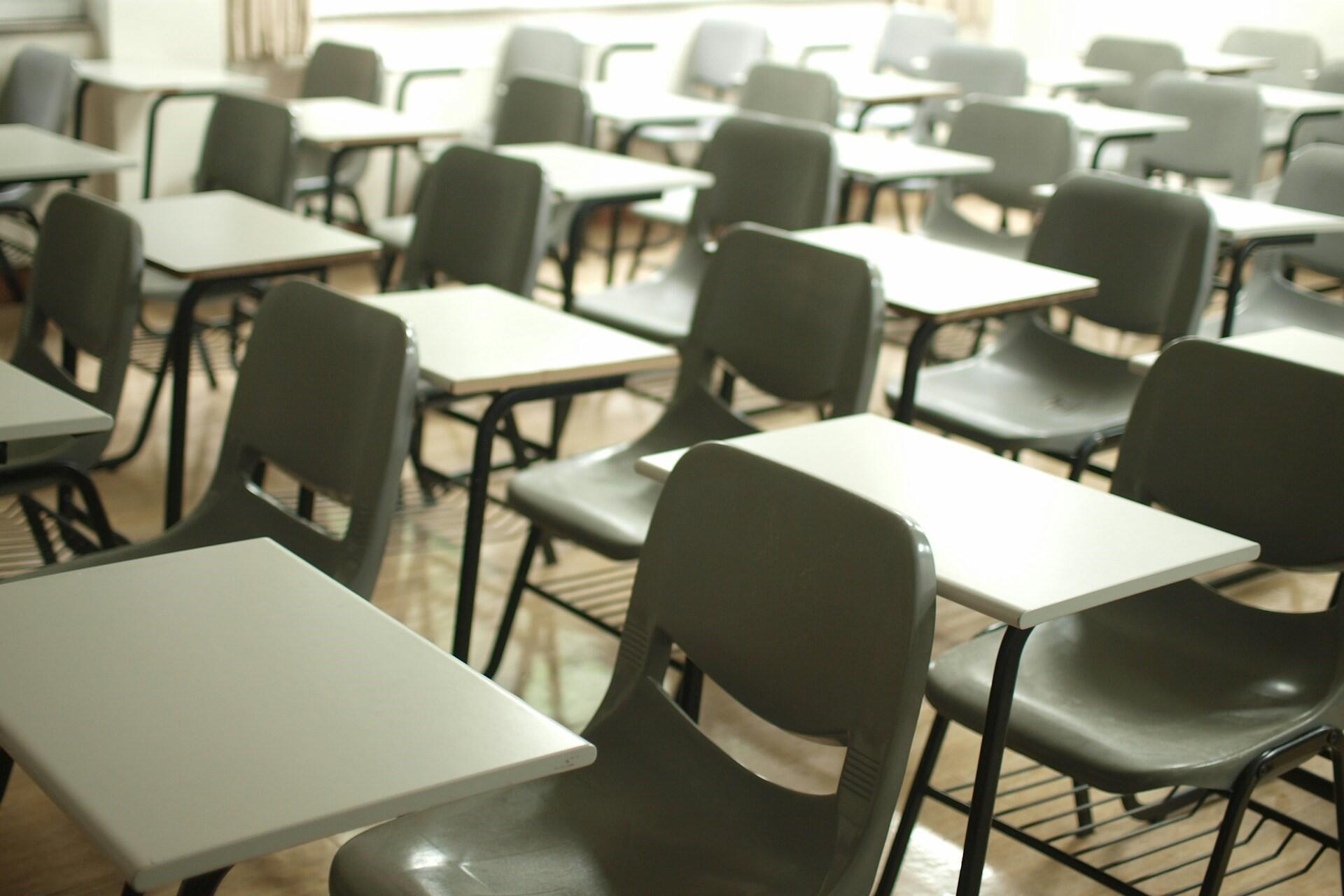For any student in the Irish education system, the Junior Cycle (formerly Junior Cert) is their first real milestone and the first time they'll take serious state examinations.
Students should expect to experience a range of emotions, including pride, anxiety, and anticipation. Their parents and teachers will likely experience the same.
So, how does the grading work? Can you fail the Junior Cycle? And what can parents do to help their children?
In this article, we have the answers to these questions and more.

The New Junior Cycle Grading System Explained
Let's start with the grading system for the Junior Cycle. With the last significant changes in 2017 and now this year, parents may be unfamiliar with how it works, especially if none of their children have done their Junior Cycle since the change.
The system was reformed to offer a better view of the student's learning journey, emphasising continuous assessment and final exam performance.
Unlike grades using letters, the new system employs descriptors such as Distinction, Higher Merit, Merit, Achieved, etc. While these terms should offer a clearer reflection of a student's level, we could debate just how effectively they achieve this goal.
| Percentage Range | Grade Descriptor |
|---|---|
| 90% or over | Distinction |
| 75% to less than 90% | Higher Merit |
| 55% to less than 75% | Merit |
| 40% to less than 55% | Achieved |
| 20% to less than 40% | Partially Achieved |
| Less than 20% | Not Graded |
Understanding Junior Cycle Grades
A lettered or numerical grading system would undoubtedly give a more precise and more immediate understanding of a student's grade, but the system is what it is, so here's an explanation of each grade descriptor and precisely what it really means.

Distinction (85-100%)
A Distinction is the highest grade that a student can achieve at Junior Cycle. Compared to the old system, where an A was for 85%, a Distinction could technically be better.
Naturally, a Distinction isn't given to any student, and in 2018, only 2.5% of students achieved a Distinction in English.
of students get a distinction.
Higher Merit (70%-<85%)
A Higher Merit means that a student has performed excellently. Those who score between 70% and 85% have an evident grasp of the subject material.
To understand just how rare and excellent this grade is, only 13.4% of students at higher level and 7.1% of students are ordinary level were given a higher merit in Maths and 7.1% at ordinary level.
Merit (55%-<70%)
Students scoring between 55% and 70% receive a Merit, which is equivalent to a C in the older system.
This is the most common grade given out. A Merit indicates an average performance in a subject—not great, but not bad, either.
Achieved (40%-<55%)
The Achieved grade is considered the basic level of achievement in a subject. If you score between 40% and 55% on a subject, you'll be deemed to have met the minimum criteria expected.
Achieved is close to a D in the old Junior Cert grading system.
With the top four grade bands now becoming evenly distributed, this will have a positive impact on students, ensuring their grades are more reflective of their work and effort, as well as of the work of our teachers.
Minister for Education Helen McEntee
Partially Achieved (20%-<40%)
While a small percentage of students will be given the Partially Achieved grade at Junior Cycle, it can still happen.
Partially Achieved means that the students have not met the learning outcomes for the subject and are not at the necessary level for this subject for the Leaving Certificate.
Not Graded (Under 20%)
Less than 0.5% of students tend to get this grade. Scoring under 20% on a subject indicates that the student needs to do a lot more work to reach the expected understanding and performance.
students sat the Junior Cycle exams.
Junior Cycle CBAs
The Junior Cycle changes in 2017 moved towards more Classroom-Based Assessments (CBAs). In many ways, an increase in CBAs is much better for students, especially those who suffer exam anxiety and for subjects where skills and understanding aren't effectively measured in exam conditions.
CBAs are projects, presentations, or practical assignments completed during the school year. They assess skills like communication, research, and creativity. Essentially, they test qualities that aren’t always visible in written exams. Every Junior Cycle subject includes at least one CBA, which helps students apply their learning in real-world contexts.
Many CBAs try to focus on giving students opportunities to demonstrate their abilities in areas like critical thinking, communication, and project work, which are all areas that wouldn't be suitable for an exam.
Again, rather than a simple and easy-to-understand numerical or lettered system, these also have a more euphemistic grading system.

Exceptional
The highest grade given to a CBA is Exceptional. This means that the student's work was beyond that expected for their level and demonstrated a deep understanding of the subject and task while displaying a level of originality.
Above Expectations
The second-highest grade for a CBA is Above Expectations. At this level, the student has more than met the task's requirements.
In-Line with Expectations
As this name indicates, this is the level of performance expected for Junior Cycle students in a subject's CBA.
The student has shown sound understanding without any significant errors.
Yet to Meet Expectations
Somewhat akin to Partially Achieved for a Junior Cert Cycle, when a CBA is Yet to Meet Expectations, the student has demonstrated some understanding but has fallen short in key assessment areas.
Not Reported
The Not Reported grade is for work that cannot be evaluated, or that was not submitted.

Can You Fail the Junior Cycle?
Like all the grades and evaluations for Junior Cycle, "Pass" and "Fail" are simply words.
As you've seen, neither term has been used, and all official documentation uses the grading system that avoids the terms.
With Junior Cycle, success and failure are more relative, depending on the grades a student expects to achieve rather than an absolute grade.
Ideally, students want to achieve a grade above 40%, as Partially Achieved and Not Graded aren't technically “Fail”, they do indicate that the student didn't achieve what was expected for the average student at Junior Cycle.
Again, remember that "average" is a term that doesn't apply to everyone, and disappointing results should be seen as feedback for areas where more work may be needed, not as a dead end for their studies or academic careers.

Is the Junior Cycle Important?
The Junior Cycle's importance really depends on the student. Ideally, every student will want the best possible results, but it's not the end of the world if they don't.
For academically minded students, the Junior Cycle can serve as an essential stepping stone, providing them, their parents, and their teachers with a clearer indication of their strengths and weaknesses, as well as areas where additional work may be needed.
The Junior Cycle is also particularly useful for students still deciding on their academic path or subject choices for the Senior Cycle. For example, a student who performs well in Maths, Irish, or English might consider opting for a higher level of these obligatory subjects at Leaving Cert.
Students who struggle with specific subjects at Junior Cycle may consider whether or not they want to continue studying them after Junior Cycle or whether they might want to enlist the help of a private tutor or extra academic support to achieve their desired results.
Here's a quick guide explaining how to make a study plan for the Junior Cycle.
Appealing Junior Cycle Results
In almost every case, a poor result is due to a student performing poorly in their exams or CBAs.
However, in some cases, there may be a need to appeal the Junior Cycle results, especially if the result doesn't appear to reflect the student's performance at all.
Appeals can be made through the school, with an appeal fee of €32 per subject. There's also a deadline for appeals, which is usually within a week of the Junior Cycle results being released.
If you're surprised by your results, you can appeal them through your school. Appeals must be submitted within one week of the results day, and a fee of €32 per subject applies. An independent examiner will review your paper. If the grade changes, you get a refund.
For Parents: Supporting Your Child During Junior Cycle
Junior Cycle or any official exam can be stressful for students, especially children. Parents should be aware that results day, in particular, can have a significant emotional impact on a child.
Remember that Junior Cycle results are not the end of the world. They can be viewed instead as useful feedback for students to see where they've done well and which subjects they may need to work harder (or more effectively) at for the Leaving Cert.
Be involved but not overbearing. Create a study-friendly environment, help with timetables, and keep an open line of communication. Offer praise for effort, not just outcome. And if needed, seek guidance from the school or external tutors.
Be wary of your child's emotional state, paying particular attention for signs of stress. This often comes with mood changes, anxiety, or a loss of interest in activities.
If needed, remember that students can get help from guidance counsellors or even tutoring if they need extra academic help with certain subjects.

Junior Cycle Tutoring and Extra Academic Support
Speaking of tutors, the Superprof website has plenty of talented and experienced ones. There are tutors specialising in Junior Cycle and subject-specific tutors.
Many tutors offer the first session for free, so you can always try a few before finding the right one.
For students who need help with more than a single Junior Cycle subject, you can also get tutoring in study skills. This can help students become more organised or revise more effectively before exams.
Summarise with AI:




















